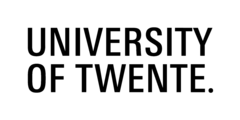Communication Science

We often think we know exactly why we do what we do, and that our behaviour is rational. But did you know that only 5% of our behaviour is conscious, and the rest is unconsciously influenced by interactions with others and technologies? As a Communication Science student at the University of Twente, you will learn how communication, design and technology - such as social media, games or even the layout of a store - subconsciously influence our behaviour.
Human interactions and tech are key to many things in human life. On a private level, they not only shape our identity, but also affect our attitudes and behaviours (think of how smartphone use influences the things we like, see and buy). On an organisational level, interactions foster for example organisational identification and leadership. Finally, on a societal level, social interactions both facilitate and hamper issues like polarisation, democratic distrust, and inequality. This challenging programme addresses all three levels and will help you understand how interaction processes work and will equip you with the skills needed to tackle the social-technical problems of today.
100% futureproof
To prepare you for the future, the programme is structured around three contemporary themes:
- Digital Society
- Changing Organisations
- Persuasive Tech.
In our modules, we combine relevant subdisciplines of communication science like organisational communication, marketing communication and media communication with related disciplines such as social psychology and human-tech interaction.
- Wypis ocen – jeśli wciąż się uczysz i dlatego nie masz jeszcze świadectwa ukończenia szkoły średniej, bardzo ważne jest załączenie wypisu. Szczegółowe informacje na temat sposobu wypełniania tego dokumentu oraz termin jego przesłania znajdziesz tutaj.
- Świadectwo dojrzałości i świadectwo ukończenia liceum – w przypadku ukończenia szkoły średniej nie potrzebujesz wypisu ocen – wystarczy, że do formularza aplikacyjnego załączysz Świadectwo dojrzałości wraz ze świadectwem ukończenia liceum.
WAŻNE! Opłata aplikacyjna - uczelnia pobiera opłatę aplikacyjną w wysokości 100 euro, którą należy uiścić przy składaniu aplikacji (podczas wysyłania formularza aplikacyjnego zostaniesz poinformowany, jak to zrobić). Tutaj można znaleźć więcej informacji na temat tej opłaty i jej wysokości. Opłata aplikacyjna jest opłacana wyłącznie raz, niezależnie od ilości wybranych kierunków na tej uczelni.
Wynik testu językowego trzeba dostarczyć do 30 czerwca.
Spełnienie wymagań w zakresie języka angielskiego można udokumentować w jeden z następujących sposobów:
- IELTS – 6.0
- TOEFL – 80
Każdy, kto nie ukończył jeszcze szkoły (nie posiada świadectwa ukończenia szkoły średniej), musi dołączyć dokument wskazujący, jakie egzaminy maturalne planuje zdawać. Dokument ten musi zostać zatwierdzony przez administrację szkoły. Formularz dotyczący egzaminu maturalnego można znaleźć tutaj:
- Zarejestruj się na stronie Kastu
- Rozpocznij wypełnianie formularza zgłoszeniowego Kastu i dodaj co najmniej jeden program licencjacki z University of Twente.
- Przejdź do Dokumentów w formularzu zgłoszeniowym Kastu, znajdź dokument o nazwie „Exam subjects form” i naciśnij żółtą ikonkę informacyjną obok.
- CV w języku angielskim
- Na świadectwie ukończenia liceum trzeba mieć ocenę przynajmniej 3 z matematyki (przedmiot ten nie musi być na rozszerzeniu).
- Matematyka musi być zdawana na maturze (na rozszerzeniu, na minimum 30%).
There are all kinds of opportunities in the job market for communication scientists. During the programme, we prepare you for these opportunities by introducing you to a variety of possible future jobs. To give you an idea, you will find below twelve of the most frequently occurring positions acquired by our Communication Science graduates.
- UX (user experience) Designer
- Big Data, Search & Conversion Marketer
- Campaign Manager
- Media Designer
- Social Media Agent
- Online Privacy Specialist
- Marketing & Communication Policy Advisor
- Digital Marketing Manager
- Public Relations Officer
- Crisis Manager
- Trend Watcher
- Copywriter and SEO Marketer
